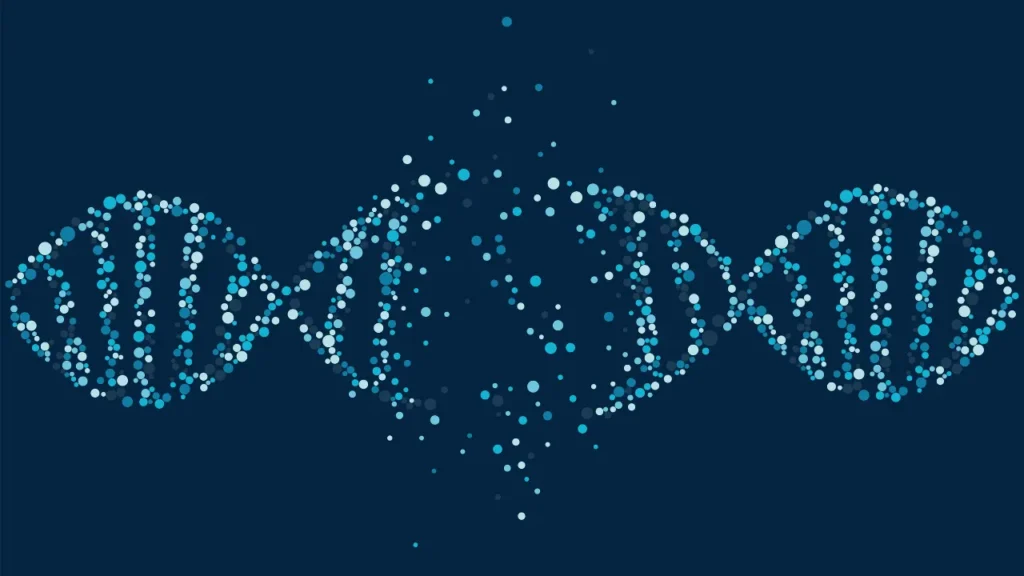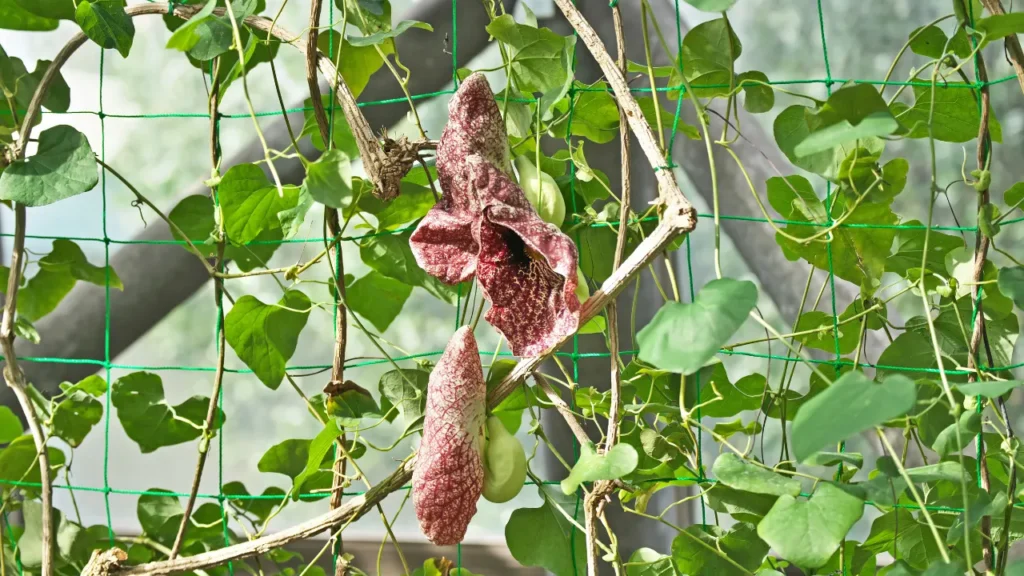Over 500 species of flowering plants belong to the genus Aristolochia. Due to their possible health advantages, some aristolochia species have been employed in traditional medicine, and their extracts have been used as dietary supplements. Aristolochia, on the other hand, contains aristolochic acids, a class of poisonous and cancer-causing substances. The most prevalent aristolochic acid is aristolochic acid I, which is known to cause kidney damage, cancer, and other health issues.
Aristolochic acids are found in the roots, leaves, and stems of aristolochia plants. In this article, we’ll look at aristolochia’s potential health benefits, health dangers related to ingestion, appropriate applications, and recommended doses. To provide scientific detail on the constituents and their effects, we will also look at the chemistry of aristolochia and the physiological mechanism of its action on the body and brain.
You May Also Like:
Five Great Reasons to Try a Nootropic Mushroom Supplement
5 Things to Consider When Choosing the Best Mushrooms for Mental Health
Aristolochia: Benefits, Dosage, Side Effects, Drug Interactions, And Other Important Information is an original (NootropicsPlanet) article.
Nature of Aristolochia
Aristolochic acids, a class of poisonous and cancer-causing substances, are present in aristolochia. The roots, leaves, and stems of aristolochia plants contain aristolochic acids. Aristolochic acid I, the most prevalent form, is known to harm kidneys and cause cancer and other health issues.
Over 500 species of flowering plants belong to the genus Aristolochia. The possible therapeutic benefits of several aristolochia species, such as relief from fever, gastrointestinal issues, and respiratory disorders, have led to their usage in traditional medicine. Aristolochia has been used traditionally in a number of parts of the world, including Asia, Europe, North America, and South America.
Aristolochia, on the other hand, contains aristolochic acids, a class of poisonous and cancer-causing substances. The roots, leaves, and stems of aristolochia plants contain aristolochic acids, which, when, consumed can lead to cancer, kidney damage, and other health issues. Due to the potential health dangers associated with aristolochia and its compounds, the World Health Organization (WHO) has issued a warning against their usage.
Health Benefits of Aristolochia
Some aristolochia species have been employed in traditional medicine due to their putative health advantages, despite the fact that aristolochic acid is recognized to be poisonous and carcinogenic. For instance, Aristolochia debilis has been used to treat fever, cough, and other respiratory conditions in Chinese traditional medicine.
Additionally, the antioxidant and anti-inflammatory effects of Aristolochia have been discovered. The ethanolic extract of Aristolochia bracteolata was discovered to have considerable anti-inflammatory and antioxidant action in a study that was published in the Journal of Ethnopharmacology.

Chemistry of Aristolochia
Aristolochic acids, a class of poisonous and cancer-causing substances, are known to be present in aristolochia plants. Aristolochic acid I is the most widely used aristolochic acid. Aristolochic acids are nitrophenanthrene carboxylic acids that are produced from the amino acid phenylalanine.
It has been determined that aristolochic acids are mutagenic, which means they can result in DNA alterations that cause cancer and other health issues. They create complexes called DNA adducts, which bond to DNA and obstruct its normal function. Genetic alterations brought on by DNA adducts have been linked to cancer and other disorders.
Physiological Mechanism of Action
It is unclear exactly how aristolochic acid affects the body and brain physiologically. Aristolochic acid is known to generate oxidative stress in cells, which can cause inflammation and harm to organs including, the kidneys and liver.
Renal failure and chronic kidney disease are two conditions that can result from aristolochic acid buildup in the kidneys and tubule destruction. Additionally, it may result in skin rashes, breathing issues, and liver damage.
Aristolochic acid can also interact with DNA, resulting in mutations and DNA damage. Cancer and other medical issues could emerge from this.
Some aristolochia species have been reported to have anti-inflammatory and antioxidant capabilities, despite these possible health hazards. According to a study that was published in the Journal of Ethnopharmacology, the ethanolic extract of Aristolochia bracteolata, for instance, showed substantial anti-inflammatory and antioxidant activities.
Any potential advantages of aristolochia should be carefully assessed because there are serious health hazards connected to its usage.


Optimal Dosage of Aristolochia
Since consuming aristolochic acid is not advised at all, there is no suggested dosage for aristolochia supplements. Consuming aristolochic acid can result in kidney damage, cancer, and other health issues. It is a collection of poisonous and cancer-causing chemicals found in several aristolochia species.
Due to the potential health dangers associated with aristolochia and its compounds, the World Health Organization (WHO) has issued a warning against their usage. Aristolochia should, therefore, never be consumed, whether as a food, a supplement, or a component of conventional medicine.
Side Effects of Aristolochia
Aristolochia and its compounds have a variety of negative side effects that have been linked to their intake. Kidney damage, cancer, and other health issues are among the most typical adverse effects of aristolochia use. Aristolochic acid use has been linked in a study that was published in the Journal of the American Society of Nephrology to renal failure and upper urinary tract malignancy.
Consuming aristolochia can also cause gastrointestinal issues such as nausea, vomiting, and diarrhea. Aristolochia can also result in skin rashes, respiratory issues, and liver damage.


Potential Substance Interactions with Aristolochia
Without consulting a medical expert, aristolochia shouldn’t be taken along with any other medications or dietary supplements. Aristolochic acid may have negative effects when used with other medications and dietary supplements. For instance, combining the use of aristolochia with NSAIDs can raise the risk of renal injury.
Best Responsible Uses of Aristolochia
Aristolochia shouldn’t be used as a supplement or utilized in conventional treatment because of its possible health hazards. Aristolochia is poisonous and carcinogenic; hence, the World Health Organization (WHO) has issued a warning against using it and its products. Any use of aristolochia ought to be avoided.
Prioritizing safe and scientifically supported methods for preserving and advancing health is crucial. There are numerous reliable dietary supplements on the market that can improve health without running the danger of negative side effects.
It is always better to speak with a healthcare provider if you have any queries or worries about using dietary supplements or other health-related issues. A healthcare expert can direct you towards safe and efficient methods of boosting your well-being and assist you in making educated decisions regarding your health.
Aristolochia:
Conclusion
While certain species of Aristolochia have been historically used in herbal medicine, scientific research on its potential health benefits is limited, and any perceived therapeutic effects must be weighed against the considerable health risks associated with aristolochic acid exposure. Healthcare authorities and herbal medicine practitioners strongly advise against the use of Aristolochia-containing products due to their toxicity. Consumption of Aristolochia-containing products can lead to severe kidney damage, urinary tract cancer, and other serious health consequences.
Therefore, it’s essential to avoid Aristolochia in any form by exercising caution when purchasing herbal remedies and avoiding products that contain Aristolochia or its derivatives. Due to the significant health risks associated with Aristolochia, regulatory agencies in many countries have taken measures to restrict or ban the sale and use of Aristolochia-containing products for medicinal purposes. These actions aim to protect public health and prevent further cases of aristolochic acid-related toxicity and cancer.


References:
- Vanherweghem, J.L., & Depierreux, M. (1998). Aristolochic acid nephropathy. Journal of the American Society of Nephrology, 9(10), 1680-1687. Retrieved from https://jasn.asnjournals.org/content/9/10/1680.long
- Vanherweghem, J.L., & Depierreux, M. (1998). Aristolochic acid nephropathy. Journal of the American Society of Nephrology, 9(10), 1680-1687. Retrieved from: https://jasn.asnjournals.org/content/9/10/1680.long
Important Note: The information contained in this article is for general informational purposes only, and should not be construed as health or medical advice, nor is it intended to diagnose, prevent, treat, or cure any disease or health condition. Before embarking on any diet, fitness regimen, or program of nutritional supplementation, it is advisable to consult your healthcare professional in order to determine its safety and probable efficacy in terms of your individual state of health.
Regarding Nutritional Supplements Or Other Non-Prescription Health Products: If any nutritional supplements or other non-prescription health products are mentioned in the foregoing article, any claims or statements made about them have not been evaluated by the U.S. Food and Drug Administration, and such nutritional supplements or other health products are not intended to diagnose, treat, cure, or prevent any disease.
